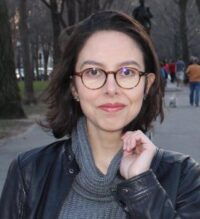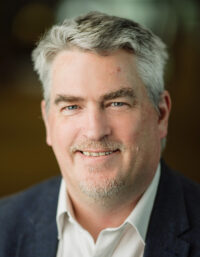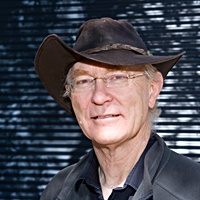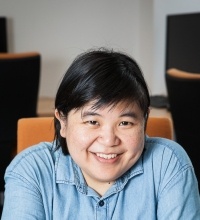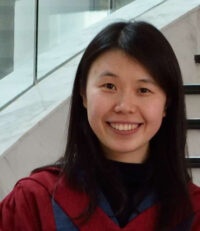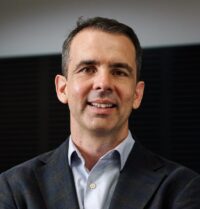-

Pamela Carreno-Medrano
Monash University
Dr Pamela Carreno-Medrano is a Research Fellow with the Department of Electrical and Computer Systems Engineering and Monash University, under the supervision of Prof. Dana Kulic. Before joining Monash, she worked as a Postdoctoral Fellow at the University of Waterloo in Canada. She received her Ph.D in 2016 (Computer Science) at Université Bretagne-Sud and the French Research Institute in Computer Science and Random Systems (IRISA) in France. Pamela’s research focuses on understanding and analysing human motion and behaviour for human-robot interaction purposes. In particular, she is interested in investigating how the underlying information humans convey through their movements and action choices can be used to inform and guide a robot’s actions and social-interactive behaviour.
-

Peter Corke
Queensland University of Technology
Peter Corke is a robotics researcher and educator. He is a Distinguished Professor at Queensland University of Technology and Director of the QUT Centre for Robotics. He was also the Director of the ARC Centre for Robotic Vision between 2014 – 2021. His research is concerned with enabling robots to see, and the application of robots to mining, agriculture and environmental monitoring. He created widely used open-source software for teaching and research, wrote the best selling textbook “Robotics, Vision, and Control”, created several MOOCs and the Robot Academy, and has won national and international recognition for teaching including 2017 Australian University Teacher of the Year. He is a fellow of the IEEE, the Australian Academy of Technology and Engineering, the Australian Academy of Science; former editor-in-chief of the IEEE Robotics & Automation magazine; founding editor of the Journal of Field Robotics; founding multi-media editor and executive editorial board member of the International Journal of Robotics Research; member of the editorial advisory board of the Springer Tracts on Advanced Robotics series; recipient of the Qantas/Rolls-Royce and Australian Engineering Excellence awards; and has held visiting positions at Oxford, University of Illinois, Carnegie-Mellon University and University of Pennsylvania. He received his undergraduate and masters degrees in electrical engineering and PhD from the University of Melbourne.
-

Donald G Dansereau
University of Sydney
Dr Donald Dansereau is a senior lecturer in the School of Aerospace, Mechanical and Mechatronic Engineering, and the Perception Theme Lead for the Sydney Institute for Robotics and Intelligent Systems. His work explores how new imaging devices can help robots see and do, encompassing the design, fabrication, and deployment of new imaging technologies. In 2004 he completed an MSc at the University Calgary, receiving the Governor General’s Gold Medal for his pioneering work in light field processing. In 2014 he completed a PhD on underwater robotic vision at the Australian Centre for Field Robotics, followed by postdoctoral appointments at QUT and Stanford University. Donald’s industry experience includes physics engines for video games, computer vision for microchip packaging, and chip design for automated electronics testing.
-

Tom Drummond
University of Melbourne
Professor Drummond is the Melbourne Connect Chair of Digital Innovation for Society at the University of Melbourne. Prior to that he was Head of Department of Electrical and Computer Systems Engineering at Monash University, where he was also Chief Investigator and Monash Node Leader for the ARC Centre of Excellence in Robotic Vision and prior to September 2010, he was a University Senior Lecturer at the University of Cambridge.
His research interests include High Performance Computing, Machine Learning and Computer Vision, with a particular emphasis on real-time systems for Augmented Reality, Robotics and Assistive Technologies. He has been awarded the Könderink prize and the ISMAR 10 year impact award. He has been awarded ARC and EU Framework research grants totalling in excess of $35M AUD as well as numerous funded industry collaborations.
-

Richard Hartley
Australian National University
Richard Hartley is an Emeritus Professor with the ANU College of Engineering, Computing and Cybernetics. Richard is renowned as one of the founders of the field of multi-view geometry in computer vision – his text has received over 28,000 citations. Richard has been ANU since January 2001. He was also the Program Leader for the Autonomous Systems and Sensor Technology Program of NICTA. Richard worked at the General Electric Research and Development Center from 1985 to 2001, where he became involved with Image Understanding and Scene Reconstruction working with GE’s Simulation and Control Systems Division. This division built large-scale flight-simulators. Professor Hartley’s projects in this area were in the construction of terrain models and texture mosaics from aerial and satellite imagery. From 1995 he was GE project leader for a shared-vision project with Lockheed-Martin involving design and implementation of algorithms for an AFIS (fingerprint analysis) system being developed under a Lockheed-Martin contract with the FBI. This involved work in feature extraction, interactive fingerprint editing and fingerprint database matching. In 2000, he co-authored (with Andrew Zisserman) a book for Cambridge University Press, summarizing the previous decade’s research in this area. (Over 60,000 citations and an h-index of 78).
-

Hanna Kurniawati
Australian National University
Hanna Kurniawati is an “ANU Futures Fellow” and Associate Professor at the Australian National University (ANU). She earned a PhD in Computer Science from National University of Singapore for work on robot motion planning. Her current research focuses on the design and development of algorithms to enable mathematically principled concepts for robust decision making to become practical tools in robotics. Together with colleagues and students, she won a best paper award at ICAPS’15 and was a finalist of the best paper award at ICRA’15. She was also a keynote speaker at IROS’18.
-

Miaomiao Liu
Australian National University
Dr Miaomiao Liu is a Senior Lecturer and an ARC DECRA Fellow in the Computer Vision and Robotics Group at ANU. She was a Research Scientist at Data61/CSIRO from 2016-2018. Prior to that she was a postdoctoral research fellow and researcher in NICTA. She received her PhD degree in November 2012 from the University of Hong Kong. Her research interests include 3D vision, 3D reconstruction and 3D Scene Modeling and Understanding.
-

Simon Lucey
University of Adelaide
Simon Lucey (Ph.D.) is a professor in the School of Computer Science at the University of Adelaide, where he is the Director of the Australian Institute of Machine Learning (AIML). Prior to this he was an associate research professor at Carnegie Mellon University’s Robotics Institute (RI) in Pittsburgh USA. From 2017-2020, he was a principal scientist at the autonomous vehicle company Argo AI and spent time at the CSIRO (2009-2014). He has received various career awards including an ARC Future Fellowship (2009-2013). Simon’s research interests span computer vision, machine learning, and robotics. He enjoys drawing inspiration from AI researchers of the past to attempt to unlock computational and mathematic models that underlie the processes of visual perception.
-

Previous International Speakers
2021
Hanna Kurniawati (Australian National University)
Gamini Dissanyake (University of Technology Sydney)
Fabio Ramos (University of Sydney)2020
Tobi Delbruck (ETH Zurich and The Institute of Neuroinformatics, Zurich)
Stefan Leutenegger (Imperial College London)
Donald Dansereau (University of Sydney)2019
Laura Leal-Taixé (Technical University of Munich)
Seth Hutchinson (Georgia Institute of Technology)
Jose Neira (University of Zaragoza)
Silvere Bonnabel (Mines ParisTech)
Tarek Hamel (University of Nice Sophia Antipolis)2018
Margarita Chli (ETH Zurich)
Vincent LePetit (University of Bordeaux)
Yarin Gal (University of Oxford)
Andrea Cherubini (University of Montpellier)2017
Davide Scaramuzza (University of Zurich)
Simon Lucey (Carnegie Mellon University)
Javier Civera (University of Zaragoza)
Sebastien Rougeaux (Seeing Machines)2016
Frank Dellaert (Georgia Institute of Technology)
Jana Kosecka (George Mason University)
Paul Newman (University of Oxford)2015
Raquel Urtasun (University of Toronto / Uber)
Andrew Davison (Imperial College London)
Fredrik Kahl (Chalmers University of Technology)
Lourdes De Agapito Vicente (University College London)
